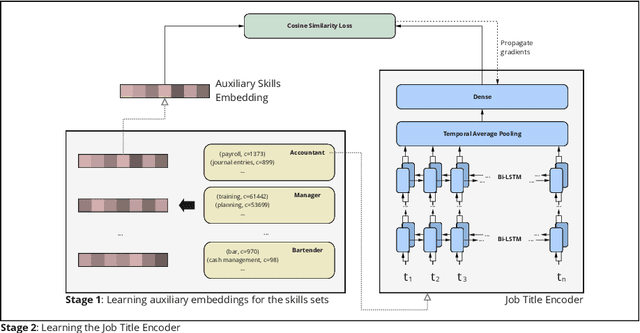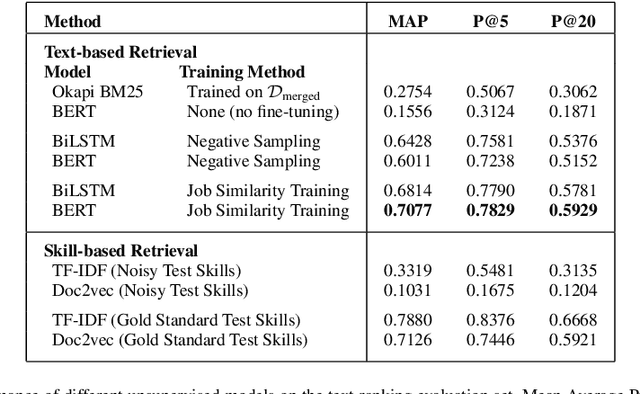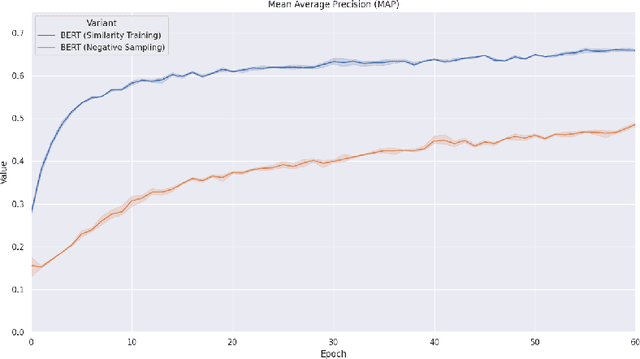Hermenegildo Fabregat
Overview of the TalentCLEF 2025: Skill and Job Title Intelligence for Human Capital Management
Jul 17, 2025Abstract:Advances in natural language processing and large language models are driving a major transformation in Human Capital Management, with a growing interest in building smart systems based on language technologies for talent acquisition, upskilling strategies, and workforce planning. However, the adoption and progress of these technologies critically depend on the development of reliable and fair models, properly evaluated on public data and open benchmarks, which have so far been unavailable in this domain. To address this gap, we present TalentCLEF 2025, the first evaluation campaign focused on skill and job title intelligence. The lab consists of two tasks: Task A - Multilingual Job Title Matching, covering English, Spanish, German, and Chinese; and Task B - Job Title-Based Skill Prediction, in English. Both corpora were built from real job applications, carefully anonymized, and manually annotated to reflect the complexity and diversity of real-world labor market data, including linguistic variability and gender-marked expressions. The evaluations included monolingual and cross-lingual scenarios and covered the evaluation of gender bias. TalentCLEF attracted 76 registered teams with more than 280 submissions. Most systems relied on information retrieval techniques built with multilingual encoder-based models fine-tuned with contrastive learning, and several of them incorporated large language models for data augmentation or re-ranking. The results show that the training strategies have a larger effect than the size of the model alone. TalentCLEF provides the first public benchmark in this field and encourages the development of robust, fair, and transferable language technologies for the labor market.
Résumé Parsing as Hierarchical Sequence Labeling: An Empirical Study
Sep 13, 2023



Abstract:Extracting information from r\'esum\'es is typically formulated as a two-stage problem, where the document is first segmented into sections and then each section is processed individually to extract the target entities. Instead, we cast the whole problem as sequence labeling in two levels -- lines and tokens -- and study model architectures for solving both tasks simultaneously. We build high-quality r\'esum\'e parsing corpora in English, French, Chinese, Spanish, German, Portuguese, and Swedish. Based on these corpora, we present experimental results that demonstrate the effectiveness of the proposed models for the information extraction task, outperforming approaches introduced in previous work. We conduct an ablation study of the proposed architectures. We also analyze both model performance and resource efficiency, and describe the trade-offs for model deployment in the context of a production environment.
Learning Job Titles Similarity from Noisy Skill Labels
Jul 01, 2022



Abstract:Measuring semantic similarity between job titles is an essential functionality for automatic job recommendations. This task is usually approached using supervised learning techniques, which requires training data in the form of equivalent job title pairs. In this paper, we instead propose an unsupervised representation learning method for training a job title similarity model using noisy skill labels. We show that it is highly effective for tasks such as text ranking and job normalization.
 Add to Chrome
Add to Chrome Add to Firefox
Add to Firefox Add to Edge
Add to Edge